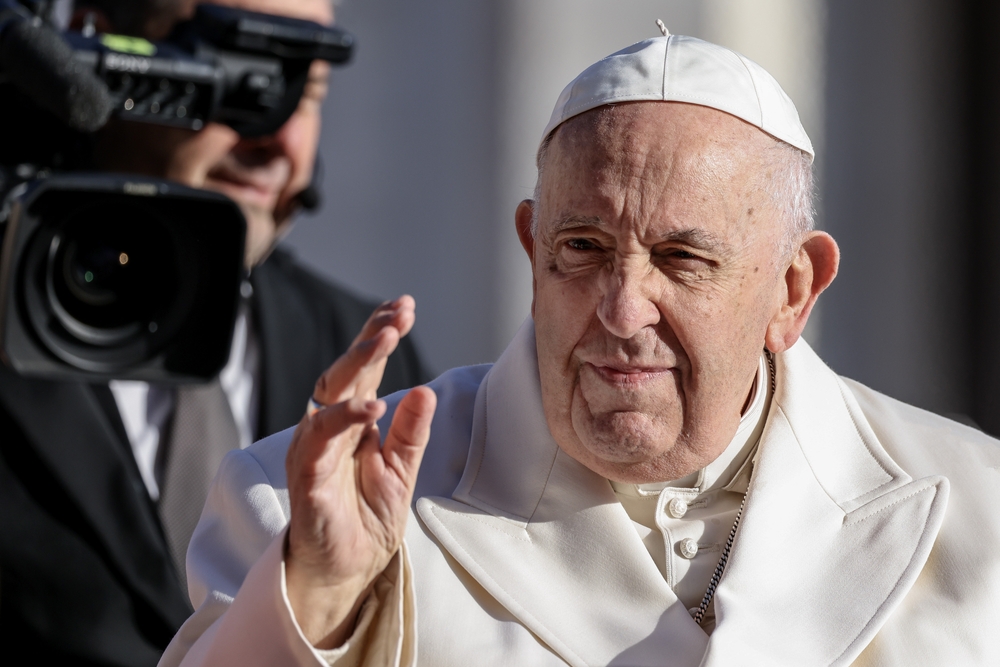Pope Francis, in a 7,000-word “Apostolic Exhortation,” called on climate change deniers and hesitant politicians to expedite the world’s transition to renewable energy. His speech, “Laudate Deum” (Praise God), emphasizes the importance of combating climate change before it’s too late.
Recognizing the signs of change
In his impassioned plea, Pope Francis realizes that the irrefutable human impacts to climate change, as well as the compelling scientific evidence supporting global warming, cannot be ignored. He cautions that our earth may be on the verge of a crisis that we cannot afford to ignore or dismiss.
Extreme weather phenomena, which he described as the planet’s “cries of protest” since the publication of Laudato Si, inspired him to compose Laudate Deum.
“Despite efforts to deny, conceal, gloss over, or relativize the issue, the signs of climate change are here and becoming more visible.” “No one can deny that in recent years we have seen extreme weather phenomena, frequent periods of unusual heat, drought, and other protests,” Pope Francis stated, according to CNN.
Pope Francis advised against putting too much faith in carbon capture technologies in his speech. While it was encouraging, he stated that it did not address the underlying human causes of global warming.
“Some effects of the climate crisis are already irreversible, at least for several hundred years, such as the increase in the global temperature of the oceans, their acidification and the decrease of oxygen,” he stated in his paper.
According to Reuters, Pope Francis also stated that activist groups should not be labeled as “radicalized” because they are “filling a space left empty by society as a whole.”
“The rise in the sea level and the melting of glaciers can be easily perceived by an individual in his or her lifetime, and probably in a few years many populations will have to move their homes because of these facts,” Pope Francis said in a statement.
A call for urgency
“With the passage of time, I have realized that our responses have been insufficient, even as the world in which we live is collapsing,” Pope Francis wrote, according to The New York Times.
The document, Laudate Deum (Praise God), was produced ahead of the COP28 climate conference in Dubai next month. It comes after his 2015 encyclical on the environment, Laudato Si (Praise Be).
Pope Francis has made a clarion plea for action ahead of the next COP28 climate meeting in Dubai, drawing inspiration from the planet’s “cries of protest” in the form of catastrophic weather disasters. His most recent message, Laudate Deum, comes after his 2015 encyclical on the climate, Laudato Si.
In his moving plea, Pope Francis warns against complacency and underscores that climate change is “antropic” – caused by human activity. He urges corporations and governments to put short-term interests aside and contribute to the critical energy transition required for a sustainable future.
Beyond carbon capture
Furthermore, Pope Francis rejects the label of “radicalized” activist groups, claiming that they are filling a need left by society as a whole. He pushes society to look above narrow interests and embrace a broader vision for the good of the world.
With an eye to the future, Pope Francis emphasizes the urgency of addressing climate change, saying that people can see the effects of rising sea levels and glacier melting within their lifetimes. To guarantee meaningful advancement, he calls for a common commitment to action and ongoing monitoring.
“The rise in the sea level and the melting of glaciers can be easily perceived by an individual in his or her lifetime, and probably in a few years many populations will have to move their homes because of these facts,” Pope Francis said in a statement.
As the globe grapples with climate change’s problems, Pope Francis’ impassioned call for renewable energy and climate action serves as a timely reminder of the moral duty we all share in protecting our planet for future generations.











